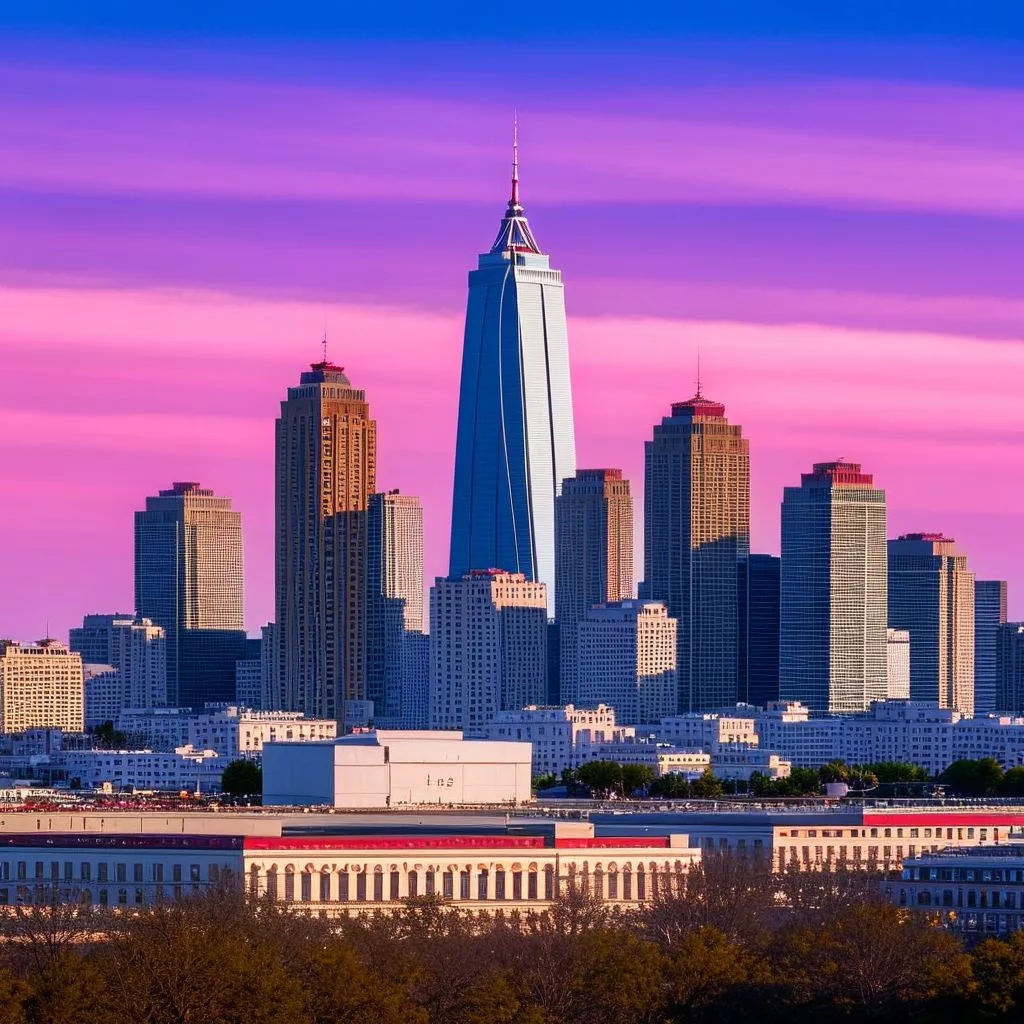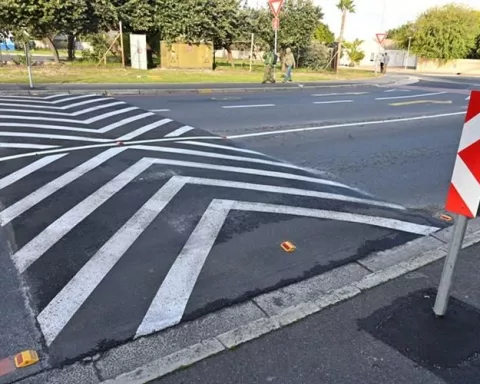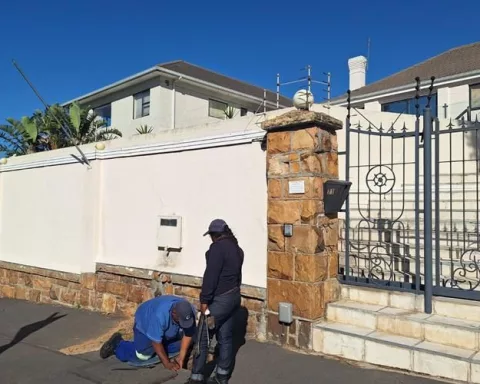Cape Town is breathing new life into the Good Hope Centre, a historic landmark in the heart of the city. The redevelopment plan focuses on community involvement, creating jobs, and preserving the building’s rich heritage. As the project kicks off in March 2025, locals are invited to share their thoughts and dreams for this iconic space. The goal is to transform the centre into a lively hub where history meets modernity, ensuring it remains a vital part of Cape Town’s culture and economy for years to come. This exciting change promises a bright future for the Good Hope Centre, where everyone in the community can gather and thrive.
What is the redevelopment plan for Cape Town’s Good Hope Centre?
The redevelopment plan for Cape Town’s Good Hope Centre focuses on revitalizing the iconic landmark through community-driven engagement, economic growth, and heritage preservation. It aims to create job opportunities, enhance public amenities, and ensure sustainable urban integration while honoring the site’s historical significance.
A Historical Gem in Cape Town
Cape Town’s history is vividly reflected in its urban landscape, with the Good Hope Centre standing as a prominent testament to the city’s rich cultural journey. Located centrally, this iconic building has long been a part of the city’s architectural heritage. As Cape Town looks to redefine its urban core, the City of Cape Town invites residents, businesses, and various stakeholders to participate in the ambitious redevelopment plans for this storied landmark.
Starting on Thursday, 20 March 2025, and running until Monday, 21 April 2025, the public comment period on the redevelopment proposal will serve as a vital platform for community engagement. This initiative is a significant component of the City’s Integrated Development Plan (IDP) for 2022-2027, aiming to unlock the latent potential of the Good Hope Centre. The redevelopment promises long-term benefits for the economy, heritage, and communities of Cape Town.
Revitalizing a Landmark
The core of the redevelopment proposal is to breathe new life into the Good Hope Centre precinct. The vision is to create economic opportunities, generate employment, and attract investment. Transforming this historically important site into a vibrant, multi-use area, Cape Town seeks to enhance the urban landscape and ensure sustainable development for future generations. The city’s dedication to preserving the heritage of the Good Hope Centre while facilitating its transformation shows a deep respect for its historical and cultural significance.
The Good Hope Centre has seen numerous cultural, social, and political events over the decades. Its current transformation signals a new chapter, blending historical preservation with modern design. Public involvement in this process is crucial to ensure that the voices of those who hold the center dear are heard and incorporated into its evolution.
Alderman James Vos, Cape Town’s Mayoral Committee Member for Economic Growth, emphasizes the city’s vision by stating, “We encourage all Capetonians to share their views on this proposal. The Good Hope Centre has played an important role in the city’s history, and its redevelopment presents a unique opportunity to reimagine its purpose while ensuring it contributes meaningfully to our economy and communities.”
Economic Potential and Heritage Preservation
Unlocking Economic Potential
The redevelopment aims to attract investment, support local businesses, and create jobs both during and after the construction phase. This economic surge will have a ripple effect throughout the community, fostering entrepreneurship and revitalizing local commerce. The influx of capital and business activities will transform the precinct into a bustling hub of economic vitality, benefitting the city’s economy.
Heritage Preservation and Adaptive Reuse
Preserving the historical elements of the Good Hope Centre while integrating modern, sustainable designs forms a cornerstone of the redevelopment plan. This approach honors the past while embracing the future, ensuring that the site retains its historical charm even as it evolves to meet contemporary needs. The adaptive reuse of the center promises to create a space where history and modernity coexist harmoniously, making it a unique and valuable landmark for Cape Town.
Financial Sustainability
By reducing ongoing operational and maintenance costs, the redevelopment aims to free up municipal resources for better allocation. This financial strategy will enhance the property’s future market value, making it a valuable asset for the city. The strategic management of financial resources underscores the City’s commitment to ensuring the long-term viability and sustainability of the Good Hope Centre.
Urban Integration and Infrastructure Upgrades
Urban Integration and Inclusivity
Enhancing public amenities, improving accessibility, and promoting community engagement are pivotal components of the redevelopment plan. The vision of an inclusive urban space where all residents feel welcome and engaged drives the City’s efforts. Upgraded public amenities and improved accessibility will ensure that the Good Hope Centre serves as a communal gathering place, fostering social cohesion and a sense of community.
Infrastructure and Connectivity Upgrades
Upgrading surrounding transport links and public spaces is crucial for the precinct’s long-term success. Improved infrastructure will facilitate ease of access, ensuring that the Good Hope Centre remains connected to the broader urban network. These enhancements will contribute to the overall functionality and appeal of the site, making it a desirable destination for both residents and visitors. The City’s belief in the transformative power of the Good Hope Centre’s redevelopment is palpable. The project’s potential to foster a vibrant, inclusive, and economically viable space promises to contribute significantly to the development of Cape Town’s urban landscape.
Global Inspiration and Community Involvement
Drawing parallels with adaptive reuse projects seen in cities like New York’s High Line or London’s Tate Modern, Cape Town’s approach to the Good Hope Centre reflects a broader movement towards sustainable urban development. These global precedents highlight the potential of such projects to breathe new life into historic sites, creating spaces that resonate with both history and modernity. The redevelopment of the Good Hope Centre aligns with these global trends, promising a balanced approach to historical preservation and contemporary innovation.
As the public comment period opens, Cape Town stands at a pivotal moment where history meets opportunity. The voices of Capetonians will shape the future of the Good Hope Centre, ensuring that its redevelopment reflects the aspirations and values of the community it serves. This inclusive approach to urban planning underscores the City’s commitment to creating a space that honors the past while embracing the promise of the future.
The story of the Good Hope Centre is not just one of bricks and mortar, but of a community’s hopes and dreams for a better, brighter future. The proposed redevelopment offers a unique chance to reimagine this iconic landmark, ensuring that it continues to play a pivotal role in the cultural and economic life of Cape Town for generations to come. The project promises to transform the Good Hope Centre into a symbol of Cape Town’s evolving identity, blending its rich historical legacy with a vibrant, inclusive future.
FAQ: Reimagining Cape Town’s Good Hope Centre
What is the redevelopment plan for Cape Town’s Good Hope Centre?
The redevelopment plan focuses on revitalizing the Good Hope Centre through community-driven engagement, economic growth, and heritage preservation. It aims to create job opportunities, enhance public amenities, and ensure sustainable urban integration while honoring the site’s historical significance.
When will the public comment period for the redevelopment proposal take place?
The public comment period will start on Thursday, 20 March 2025, and conclude on Monday, 21 April 2025. This period is designed to encourage community involvement and gather feedback on the redevelopment plans.
How does the redevelopment plan aim to support the local economy?
The redevelopment seeks to attract investment, support local businesses, and create jobs both during and after construction. The expected economic surge will foster entrepreneurship and revitalize local commerce, transforming the precinct into a bustling hub of economic activity.
What measures are being taken to preserve the heritage of the Good Hope Centre?
The redevelopment plan emphasizes preserving the historical elements of the Good Hope Centre while integrating modern, sustainable designs. This adaptive reuse approach ensures that the site retains its historical charm while evolving to meet contemporary needs.
How will the redevelopment improve accessibility and community engagement?
The plan includes enhancing public amenities, improving accessibility, and promoting community involvement as pivotal components. This vision aims to create an inclusive urban space where all residents feel welcome, fostering social cohesion and a sense of community.
What global examples inspire the redevelopment of the Good Hope Centre?
The Good Hope Centre’s redevelopment draws inspiration from successful adaptive reuse projects like New York’s High Line and London’s Tate Modern. These global precedents highlight the potential of historic sites to be transformed into spaces that resonate with both history and modernity.












